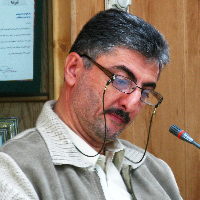The obligation of adopting a Partnership-based Placemaking approach; In the regeneration of historical contexts
Historical context was created from the long experience of human interaction with the environment, but we see that after the interventions that were applied in the historical contexts, the presence and social interactions of people in the context have diminished, because these projects are not from the heart of the society and the environment, hence it does not create dependency. Preserving a historical site or creating a new site in the historical context is one of the most important issues in urban planning in the modern world. Placemaking means creating a high-quality place through social participation, which we intend to increase the quality of life in the context and social interactions during regeneration, as one of the methods in urban reconstructions.
A type of placemaking, conditional and dependent on the preservation of the originality and values of the texture, with reversible measures, through the participation of local communities, is the aim of this study. In this article, an attempt has been made to pay attention to placemaking with a community-based development approach and to improve the quality of the environment and develop interactions in the field of historical textures to regenerate textures.
The method of this research is qualitative with a descriptive-analytical approach. For this purpose, the internal and external experiences of actions in similar contexts of Tehran's historical context were examined to reach the framework of regeneration in the historical contexts of Iran.
The important achievement of this study is to explain the obligation for placemaking with participation basis and its importance in historical texture regeneration projects, to create values in today’s texture structure, to preserve these textures for creative placemaking in urban spaces and quality improvement.
Considering the necessity of social participation which was concluded from the study of successful domestic and foreign regeneration projects in the historical context, and considering the importance of discussion of residents' sense of belonging in attracting their social participation, the priority of placemaking approach in participatory basis were considered to strengthen the participatory spirit of residents in the regenerating historical contexts.
-
Conceptualize of Mutual Acquaintance and its Influence on Enhancing of Citizenship Social Relation Quality; An Urbanistic Approach in the Context of Islamic Ideology
Ramin Khorsand, *, Reza Kheyroddin
Journal of Interdisciplinary studies of Islamic revolution civilization, -
Explaining the Role of Religious Mega-Events in Urban Management with a Social-Cultural Sustainability ApproachCase Study: Arbaeen Hosseini Mega-Event in the Axis of Najaf to Karbala
Ahmed Almusawi, *
Journal of Islamic Architecture Research,


